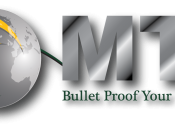IntroductionUtilizing company email for personal use can become problematic if one does not comply with company policy. All employees need to consider the effects it creates when extensive personal use is conducted. The following guidelines, along with the advantages and disadvantages, are a tool in upholding professionalism and ethical practices.
General GuidelinesPersonal email is permitted for occasional use only. One must keep in mind that the policy applies at all times, including breaks, after hours, weekends, holidays, etc. Trading jokes with sensitive topics such as sex, explicit images, religion, race, etc. is not permitted in order to avoid offence to any person(s) and/or legal issues. Employees must secure any access codes or passwords to prevent admission to unauthorized users.
MonitoringAll personal email entries are subject to monitoring. We reserve the right to monitor email at any time. Therefore, an employee cannot consider email to be private. Although we reserve the right to view all email entries at anytime most monitoring will only occur when there is reasonable cause to do so.
Public ImageEmployees are expected to maintain a positive public image for the company. As stated in the Treasury Board Policy in a Federal Government job, "employee's are responsible for writing communications in a professional way, so as not to reflect badly on their institution" (Worklife Report, 2002, p. 9). One's company email address such as, employeename@company.com should be considered a form of letterhead and may not be used for public posting unless authorized in advance by your immediate supervisor.
Corrective / Disciplinary ActionsEmployees who are unwilling to adhere to the guidelines set forth in this policy are subject to disciplinary action including, but not limited to, employment termination. On first offences, a verbal warning will be issued. If the employee continues to defy company policy a written warning is issued. Finally, if all other attempts to correct one's behavior fails, the result could be loss of email privileges and/or termination from the company.
VirusesThe annual toll viruses take on companies run in the tens of billions. A virus usually destroys valuable data but sometimes can slow or shut down an electronic communication by creating a high level of network traffic. If the loss of data or files is sufficient enough and the thoroughness of the technical department is not enough, permanent network degradation can occur. Although the costs associated with cleanup and data recovery are great, network downtime equals profit killing loss of productivity. Employees are required to use the company provided anti-virus software in order to prevent such occurrences. All incoming and outgoing file attachments are required to be scanned for viruses before opening on company owned computers and/or networks.
ConclusionFrom what we have discussed thus far, when focusing on utilization of company email, there are many more disadvantages than advantages. Several issues can occur, for example; viruses invading the companies/employees files, loss of productivity, and added costs for monitoring systems. This will inadvertently affect the reputation and company interests.
Occasional personal use is permitted, only without adversely affecting the interests of the company. Employees are trusted to conduct themselves responsibly and use good judgment to protect company assets, reputation and customer satisfaction. Allowing personal access to company email resources, would display personal concerns towards the employee. In summary, boosting morale can be an effective tool for productivity.
References:Worklife Report, 2002, Vol. 14 Issues 3, p. 9, 1pEmail-policy.com, 2001, Legal Liability p, 1, The year 2001 Corporate Web and Email Usage Study. P. 9 Retrieved August 13, 2008.




